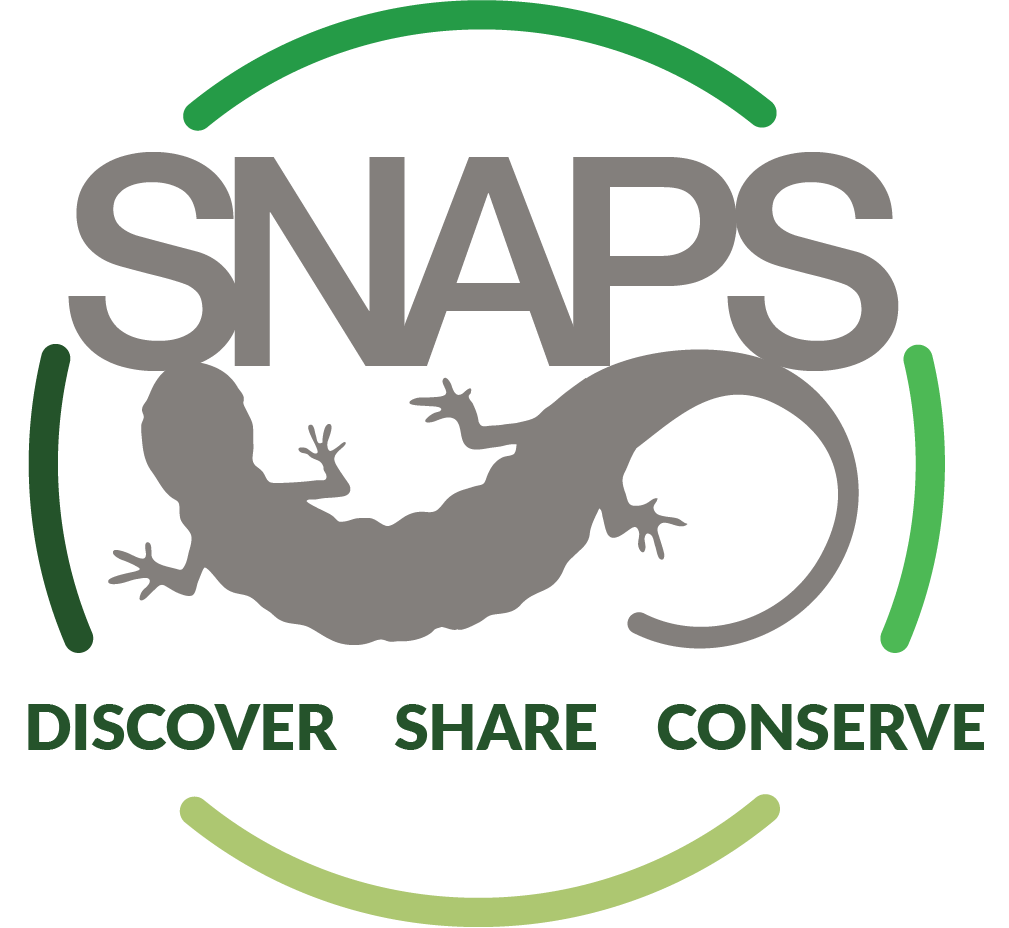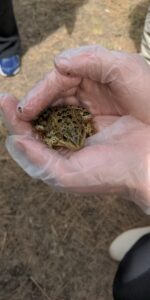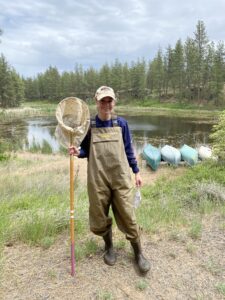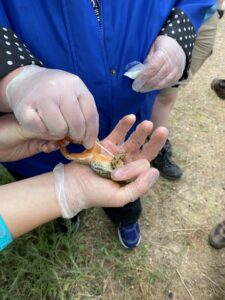MISSION: Mobilizing students to lead the search for emerging amphibian pathogens.
VISION: An experiential learning network driving early detection of emerging amphibian pathogens in North America.
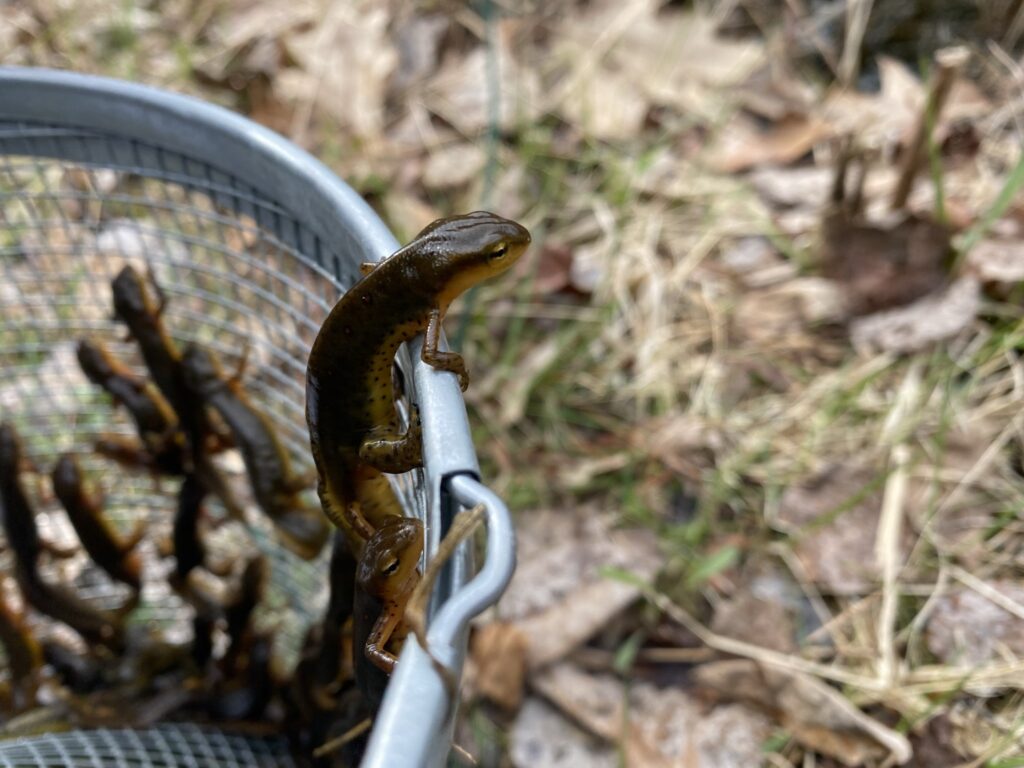
We are a network of students, scientists and educators committed to the conservation of amphibians against the threat of emerging pathogens, with an initial focus on Batrachochytrium salamandrivorans (Bsal). This deadly pathogen has yet to be detected in North America, but its introduction is likely, making the early detection of Bsal essential for mitigating its negative impacts. Unfortunately, early detection is inherently challenging, requiring geographically broad and ongoing surveillance. SNAPS is a new surveillance program that addresses some of these challenges. Our novel approach is to embed urgently needed Bsal surveillance into undergraduate curricula in which students learn about Bsal through the lens of various academic disciplines and then actively contribute by sampling for Bsal among their local amphibians. Amphibians serve as an opportunity for active and experiential learning among students, who in turn benefit amphibians through the surveillance of this potentially devastating pathogen.
The dual mission of the network is to facilitate meaningful, experiential learning among students while harnessing their enthusiasm, abundance, and geographic breadth to surveil for Bsal across the continent. Students learn best when they are actively engaged in a real-world issue that challenges them to apply their course content. We are leveraging this timely conservation crisis for student learning, while simultaneously leveraging students’ passion, time, and energy for Bsal surveillance. Sampling for Bsal is a relatively simple procedure involving swabbing the skin of amphibians and is an ideal field activity for novices. SNAPS provides field sampling supplies, including swabs, vials, and barcoded labels; precise protocols for sampling and biosecurity; and optional lesson plans that complement the field sampling. In the United States, SNAPS also provides a blanket Institutional Animal Care and Use Committee permit, Institutional Review Board permit for optional student learning outcome assessment, and funding for standardized diagnostics at a wildlife health laboratory. For participants in Canada and Mexico, comparable resources are currently in development. With the participation of educational institutions across the continent, we are developing an ongoing and student-powered effort for the early detection of Bsal in North America.
